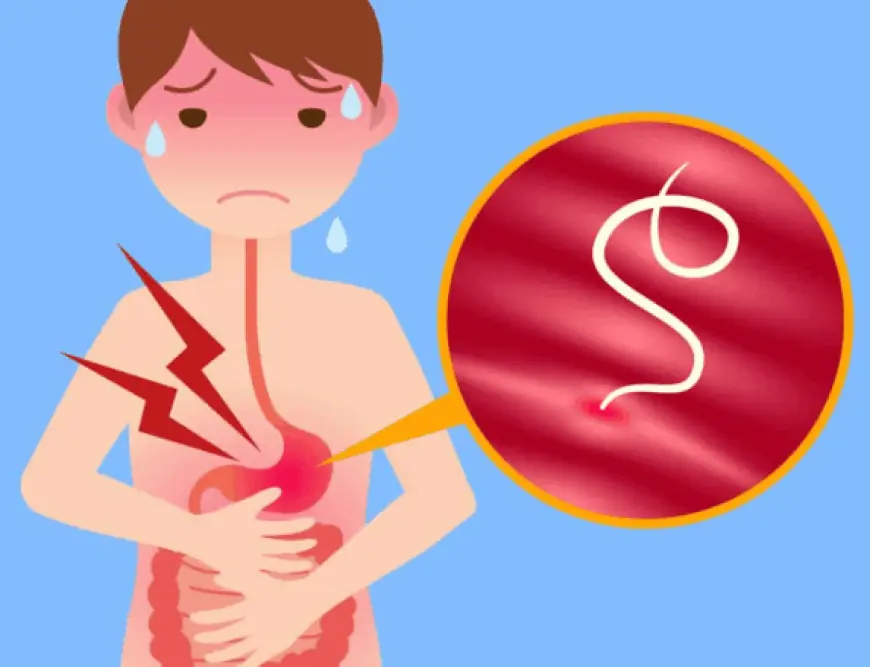Does diarrhea have a parasite attached to it?

Diarrhea is a common health condition that can be caused by a variety of factors, including infections, food intolerances, and underlying diseases. Nitazoxanide 500 mg Among these causes, parasites stand out as significant culprits, especially in regions with poor sanitation and limited access to clean water. In this article, we explore the relationship between diarrhea and parasitic infections, identifying key parasites, their modes of transmission, and strategies for prevention and treatment.
Buy Nitazoxanide 500 mg online at Dosepharmacy. Effective antiparasitic medication for treating diarrhea and infections. Fast shipping available!
What Are Parasites?
Parasites are organisms that live on or within a host, deriving nutrients at the host's expense. They can range in size from microscopic protozoa to larger helminths (worms). While some parasites coexist with their hosts without causing harm, others can lead to serious health problems, including diarrhea. Parasitic infections causing diarrhea are particularly prevalent in tropical and subtropical regions but can occur anywhere given the right conditions.
Parasites Commonly Associated with Diarrhea
- Giardia lamblia
Giardia is one of the most common causes of parasitic diarrhea worldwide. It is a protozoan parasite that spreads through contaminated water, food, or direct contact with infected individuals. Symptoms include watery diarrhea, abdominal cramps, bloating, and nausea. Nitazoxanide 200 mg The condition, known as giardiasis, can last for weeks if untreated. - Entamoeba histolytica
This protozoan parasite causes amoebiasis, characterized by diarrhea that may contain blood or mucus. It is transmitted via fecal-oral contamination, often through unsafe drinking water or improperly washed foods. Severe cases can result in liver abscesses and other complications. - Cryptosporidium spp.
Cryptosporidium is a microscopic parasite that causes cryptosporidiosis, marked by profuse, watery diarrhea. It is highly resistant to chlorine, making it difficult to eliminate from water supplies. Immunocompromised individuals, such as those with HIV/AIDS, are particularly vulnerable to severe infections. - Cyclospora cayetanensis
Cyclospora is another protozoan parasite associated with prolonged diarrheal illness. It spreads through contaminated food or water, with outbreaks often linked to fresh produce like berries or leafy greens. Symptoms include watery diarrhea, fatigue, and weight loss. - Ascaris lumbricoides
Although primarily known as a helminthic infection, Ascaris can cause diarrhea, particularly in severe cases where worm burden affects intestinal function. Transmission occurs through ingestion of soil or food contaminated with Ascaris eggs.
How Parasites Cause Diarrhea
Parasites disrupt normal digestive processes in several ways:
- Inflammation of the Intestinal Lining: Many parasites invade the intestinal walls, causing inflammation and damage. This leads to poor absorption of nutrients and increased fluid secretion, resulting in diarrhea.
- Toxin Production: Some parasites produce toxins that interfere with water absorption in the intestines.
- Mechanical Blockage: Larger parasites, such as helminths, may obstruct the gastrointestinal tract, leading to diarrhea as the body tries to expel the invaders.
Risk Factors for Parasitic Diarrhea
Several factors increase the likelihood of contracting parasites that cause diarrhea:
- Contaminated Water Sources: Drinking or using water tainted with fecal matter is a major risk.
- Poor Sanitation: Lack of access to clean toilets and proper waste disposal facilitates the spread of parasites.
- Raw or Undercooked Food: Consuming raw or poorly prepared food, especially in endemic regions, increases exposure.
- Close Contact with Infected Individuals or Animals: Parasites can spread through physical contact, particularly in crowded or unsanitary living conditions.
- Weakened Immune Systems: People with compromised immunity are more susceptible to severe parasitic infections.
Diagnosing Parasitic Diarrhea
Accurate diagnosis is crucial for effective treatment. Healthcare providers often use the following methods:
- Stool Tests: Microscopic examination, antigen tests, or PCR tests can identify specific parasites in stool samples.
- Blood Tests: Some parasitic infections can be detected through blood tests that identify antibodies or other markers.
- Imaging: In rare cases, imaging studies may be required to assess complications or rule out other causes.
Treating Parasitic Infections
Treatment depends on the specific parasite involved. Common approaches include:
- Antiparasitic Medications: Drugs like metronidazole, nitazoxanide, or albendazole are often prescribed.
- Rehydration Therapy: Oral rehydration solutions (ORS) or intravenous fluids help replace lost electrolytes and prevent dehydration caused by diarrhea.
- Nutritional Support: Maintaining a balanced diet supports recovery and strengthens the immune system.
Preventing Parasitic Diarrhea
Prevention is key to reducing the global burden of parasitic infections. Here are some effective strategies:
- Practice Good Hygiene: Wash hands with soap and water, especially before eating or preparing food.
- Ensure Safe Drinking Water: Use filtered, boiled, or bottled water in areas where contamination is a concern.
- Cook Food Thoroughly: Properly cooking meat and washing fresh produce reduces the risk of contamination.
- Improve Sanitation Infrastructure: Investing in clean water supplies and waste management systems can significantly lower infection rates.
- Educate Communities: Public health campaigns play a critical role in raising awareness about prevention methods.
Conclusion
While diarrhea can have many causes, parasitic infections remain a major contributor, particularly in resource-limited settings. Understanding the connection between parasites and diarrhea is essential for effective diagnosis, treatment, and prevention. By addressing risk factors and promoting better hygiene and sanitation practices, we can significantly reduce the impact of parasitic diarrhea on global health.
In today’s interconnected world, combating parasitic infections is not just a local concern—it is a global priority. With sustained efforts in public health and medical research, we can hope for a future where parasitic diarrhea becomes a preventable and treatable condition for ever












